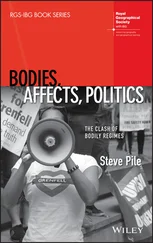I bought her for twenty coins, my father would say. At the worst of the economic crisis, when a big sack of rice imported from Calcutta or Madras cost one hundred coins, and Zarifa cost twenty.
These were the silver Maria Theresa coins which could not be faked because the silver was so pure. My father hoarded them, keeping ten or twenty or fifty in the leather bag that he always knotted onto his belt. For a long time he had nothing but scorn for the paper riyals that had since appeared, until he was forced to bow to their superior power.
Mayya, on the other hand, seemed completely enamoured of riyals. Her dream, she told me, was that we acquire as many riyals as we possibly could so that we could leave al-Awafi and build a nice house in Muscat. Meanwhile, her mother was demanding that I promise not to take her to the city. That irritated Mayya. She would not live forever, her whole and entire life, under the sway of her mother, in the way that I lived completely cowed by my father’s every word, she declared. When the rumours spread about the disappearance of the alluring Bedouin woman, her father’s lover, Mayya said, My mother has something to do with this. But her mother was a woman who never left the house. How could she have played a role in the woman’s disappearance?
Some said the Bedouin woman had come down with a mysterious disease that made parts of her beautiful body drop off, or that her limbs were rotting away, before she vanished. Others said she sold her house and camel and went to settle in Matrah in order to sell her Bedouin needlework. Still others said she had suddenly gone mad and so her friends carried her off to Ibn Sina Hospital. Word also went around that her neighbours, who had turned the satellite dish in their two-storey house into an enormous trough where their livestock ate clover, responded to her sarcastic words about them by training her mongoloid brother to shoot bullets and making him believe that his sister had brought shame upon all of them. They taught him how to use the pistol. They buried the corpse secretly one night beneath the biggest sand dune.
Asma asked, Why do you draw, Khalid?
To free myself from existing only inside the narrow space of my father’s imagination, and then to re-invent my life in the space of my own. All the time I was a child, and all the way into my early twenties, my father’s view of me was defined by what he saw in his head. He had his own fancies and it was always very clear just how far they went — and no further. I was the fuel that fired his imagination and his whole image of me, forever, was based on his absolute certainty that I would be the living version of what was in his mind. He never questioned this! So, doing art became as necessary to me as drinking water and breathing air, and that began in the very moment I realised I couldn’t live this way, I couldn’t survive without following my own imagination. Art and imagination are alike in that way, Asma. They give some kind of worth to my existence. No matter how fine and pleasant reality may be, without imagination life becomes... well, unbearable.
Do you see the way people move through life — and I mean, just the little bits of their lives you can see? Most of their movement through life is invisible, it goes on inside of them, so for us it exists beneath the surface. Their own private worlds, their imaginations. When I liberated myself from living through my father’s head I created my own imagination with a paintbrush. I grew my hair long, and my beard, I wore jeans I’d ripped up deliberately, and I dropped out of the College of Engineering so I could enter the College of Fine Arts.
Sometimes I went on painting until I collapsed from exhaustion. If I was doing anything else, even just walking down the street or something simple like that, I felt like part of my hand was missing because it wasn’t holding a paintbrush. The brush was part of my hand, growing with it. My brush breathed the same way I did. I lived in my paintings, whatever was outside no longer concerned me, or touched me, really. All I needed was my imagination. The energy I had for sketching and painting was insane. It was as if I was suffering from a fever: I lived in a fog of sweat and delirium and feeling completely, absolutely one with my art.
My art saved me from acting out the image my father had made for me. Issa the Emigrant couldn’t forget for a moment that he was an emigrant. He carried his history like it was his destiny, and he was always working to make sure his firstborn son would carry his history too. This son of his would be his revenge, which he could wave in the face of defeat, frustration, and forced absence from the homeland that had betrayed him.
Every day, Issa the Emigrant closed his eyes to open them onto the truth of his identity. He would go out and mingle in the Cairo streets, he would spend evenings chatting with Egyptians, he put his children through Egyptian universities. But he didn’t forget for a second that he was Issa, son of Shaykh Ali, who carried the burden and the woes of Oman on his shoulders. Shaykh Ali was in the delegation that accompanied Shaykh Issa bin Salih, the Imam’s ambassador, on the day the famous Treaty of Sib was signed between the English and the Sultan, on one side, and the Imam and the tribes allied with him on the other. He never forgot how positively overjoyed his father was when this treaty was signed. It gave them freedom of movement in the interior, and influence on more tribes, and helped them spread their calls for unity and organization in preparation to go against the English. All the details of his history and identity kept Issa the Emigrant awake nights. Many times he made me listen to him talk about the spirits of his grandfathers that he believed he was now faithfully representing on earth. His great-grandfather Shaykh Mansur bin Nasir was among the cavalry who combated Mutlaq the Wahhabi in his repeated raids on Omanis. He was in the battle where the Omanis held on so fiercely to their swords that their hands were stiff and rigid around them by the time darkness fell. In their songs the women recount how women soaked the fighters’ hands in water until they softened enough for the swords to drop. Shaykh Mansur’s name itself was in more than one of those women’s songs, which they went on singing in their wedding parties long after the event. Songs that expressed the extraordinary courage of the shaykh whose white steed flew with him, his hands firm on his sword, putting terror in the men of Mutlaq al-Wahhabi. Issa the Emigrant carried on his back the souls of those forefathers. He fought at Jabal al-Akhdar at the side of the Imam Ghalib al-Hina’i. He buried their martyrs with his own hands and carried secret missives under cover of darkness. When they were defeated and scattered he fled. He emigrated, but it was only his body that went. His soul was too heavy to go.
What did he want to make me into? A fighter? A martyr? A young shaykh feeding the hungry and finding refuge for the weak? A shaykh of today who would stamp his approval on letters containing the demands of Bedouins and peasants? Some kind of opposition activist? What? When the revolution took fire in Dhofar he refused to even discuss it. He simply rejected the whole idea, and he was furious about the whole thing. Those Communists? he would shout. Out of the question! This will never suit Oman. Never.
Every evening, I had to read passages from the book The Gem of Notable People in the History of the Folk of Oman by Shaykh al-Salmi out to him until I had the whole text by heart. He used to take me with him to the Nile River Corniche in the late afternoons and while we were walking he would ask me to recite the famous poem by Abu Muslim al-Bahlani, with its powerful memories of his early life. To recite it from the first line all the way to end. He explained to me — many times he explained to me! — that this nineteenth-century fellow, Abu Muslim, might be an Omani but he was no less a poet than was his famous Egyptian contemporary Ahmad Shawqi. You really must learn by heart every last poem he composed, he would exclaim. And not only the poem that everyone knows. But how he cried when I recited lines from it.
Читать дальше












